THE NEW YORK TIMES: Four more years of unpredictability? The world prepares for Donald Trump’s return
With Trump’s sweeping election victory Tuesday, the world is now preparing for another four years of unpredictability and ‘America First’ protectionism that could reset the ground rules of the global economy.
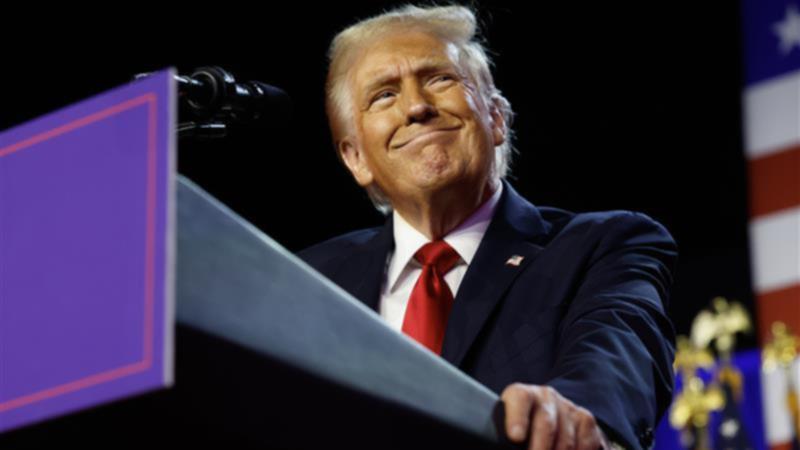
With Donald Trump’s sweeping election victory Tuesday, the world is now preparing for another four years of unpredictability and “America First” protectionism that could reset the ground rules of the global economy, empower autocrats and erase U.S. protection for democratic partners.
Although foreign affairs proved largely absent from the campaign, Trump has made several statements that — if turned into policy — would transform America’s relationship with both allies and adversaries. He has pledged to end the war in Ukraine in 24 hours, a promise many assume amounts to the withdrawal of U.S. aid for Ukraine, which would benefit Russia.
More broadly, he has vowed to make the world’s most powerful country more isolationist, more combative with tariffs, more openly hostile to immigrants, more demanding of its security partners, and less engaged on global challenges such as climate change.
Sign up to The Nightly's newsletters.
Get the first look at the digital newspaper, curated daily stories and breaking headlines delivered to your inbox.
By continuing you agree to our Terms and Privacy Policy.Many believe the impacts could be greater than anything seen since the start of the Cold War.
“It accelerates the already deep trend of an America looking inward,” said James Curran, a professor of modern history at the University of Sydney. “Allies are going to have to save the multilateral furniture while it’s still around — they have to hope that America buys back in.”
By now, after witnessing his first term, the world already knows that the only certainty with Trump is uncertainty. He has often said that keeping the world guessing is his ideal foreign policy.
Senior officials around the world tried to stress elements of their relations with the United States that would endure.
In Mexico, President Claudia Sheinbaum said Wednesday that there would be “good relations” with the United States, despite Trump’s recent threats to impose mammoth tariffs on her country. “There is no reason to worry,” she said. “Mexico always comes out ahead.”
Foreign Minister Antonio Tajani of Italy told Sky News he believed Trump had “a natural sympathy for Italy.” He said he was “convinced that we will work well with the tycoon’s new administration.”
In Kenya, Ndindi Nyoro, a lawmaker with President William Ruto’s governing coalition, said he thought Trump’s economic policies would be better for African countries, many of which are struggling with growing inflation and crushing debt.
India has also been watching the U.S. contest with little concern, trusting that as the world’s most populous nation and fifth-largest economy, it would still be courted as a counterweight to China.
Trump had a combative relationship with the United Nations during his first term, slashing money for a range of issues including peacekeeping, the Palestinians and women’s rights, although the U.S. remained the top donor. In congratulating Trump on his win this time, U.N. Secretary-General Antonio Guterres called cooperation with the United States “an essential pillar of international relations.”
Bracing for an Isolationist Approach
Trump’s isolationist campaign themes have already put many nations on edge.
China, with its own economy in the doldrums, faces likely broader and higher tariffs than those applied during Trump’s first term and continued by President Joe Biden. Shi Yinhong, an international relations professor at Renmin University in Beijing, said a second Trump presidency would “inevitably diminish global trust and respect for the United States.”
Few of China’s neighbours, wary of Beijing, see cause for celebration in Trump’s victory.
South Korea and Japan expect to be pressured into paying more to have U.S. troops based in their countries. Trump has pledged to make South Korea pay $10 billion annually; it currently pays a little over $1 billion.
Fears of a Less Secure World
Some diplomats in Asia have said that with Trump in power, they also expect China to intensify pressure on Taiwan, if not invade the self-governing island it claims as its territory. In their view, China may calculate that Trump would not go to war for a democracy that he has accused of “stealing” the microchip industry from the United States.
People on the island, where Trump was well-regarded in his first term, have become less sure that he can be trusted.
“With Donald Trump, there are large amounts of uncertainty,” said Lev Nachman, a political scientist at National Taiwan University in Taipei. “And it’s a matter of uncertainty that comes with great risk for Taiwan.”
For Ukraine, Trump’s return means a fog of additional danger. His claim that he will be able to broker an end to the war immediately along with his warm relations with President Vladimir Putin of Russia has fueled worries that he would force the Ukrainians into a bad deal by cutting off U.S. military support.
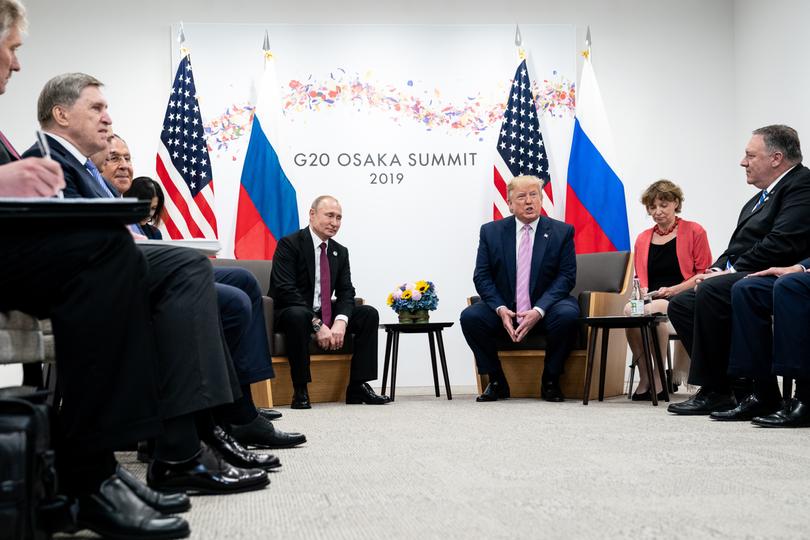
In Russia, the Kremlin held off from official congratulations, with Dmitry Peskov, the spokesperson for Putin, noting that the United States was “unfriendly” toward Moscow and backing Ukraine in the conflict. Still, there were hints of glee over Trump’s victory, not least because Trump has long made favourable comments about Putin.
“If someone can change something,” Russian press reports quoted Peskov as saying, referring to the war, “then this should be welcomed. If these are words during the election campaign — we have seen this before.”
Russia keenly remembers that the first Trump administration imposed sanctions on the country over a range of issues. “Trump’s victory will definitely not make things easier for us,” wrote Sasha Kots, a prominent military blogger. “He is smart and unpredictable. And this is dangerous.”
Anxiety and Unease Among Democratic Partners
President Volodymyr Zelenskyy of Ukraine said last week that he “understands all the risks” of a Trump victory. But on Wednesday he wrote on the social platform X that he appreciated “President Trump’s commitment to the ‘peace through strength’ approach in global affairs.”
But many of Ukraine’s supporters in the region are “woefully unprepared for a return of Trump,” said Georgina Wright, a European politics expert at the Montaigne Institute in Paris. Analysts and officials on the Continent expect a trade war, a bigger bill for NATO and military aid from Washington, a Trump-encouraged spread of anti-democratic populism, and a greater risk of Russia widening its territorial ambitions.
Trump has implied he would not abide by the NATO article requiring collective defense, which helped to curtail war in Europe. Trump has said he would “encourage” Russia “to do whatever the hell they want” to countries that had not paid sufficient money to the alliance.
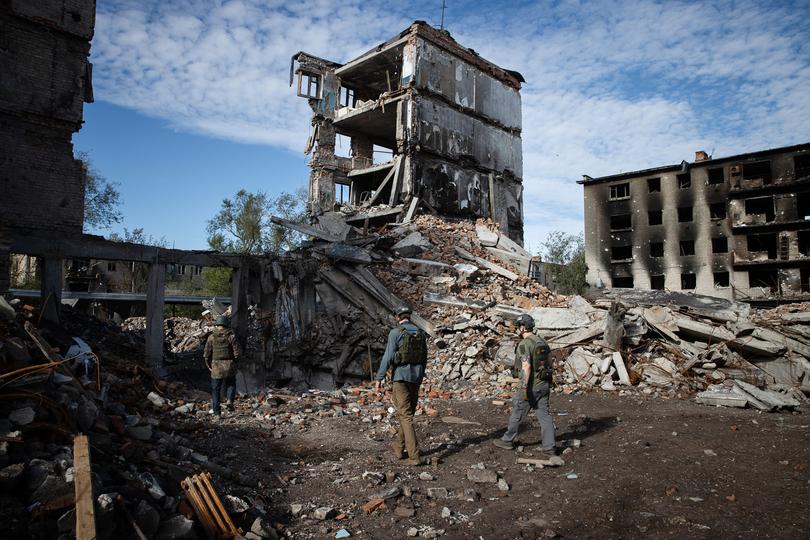
While publicly congratulating Trump, French President Emmanuel Macron and German Chancellor Olaf Scholz on Wednesday discussed European strategy toward a transactional president whose country is a strategic ally and Europe’s biggest trade partner. “We will work towards a more united, stronger, more sovereign Europe in this new context,” Macron said on X.
In nations that leaned on the United States to defeat fascism during World War II, there’s still a sense of shock that American voters elected a felon who has promoted threats of violence against journalists, and said he would use the courts and the military against domestic enemies.
“I don’t see a great future for European democracies, if there is not a strong democratic America as a rock to lean on,” said Nicole Bacharan, a political scientist in Paris.
Frank Mugisha, a prominent Ugandan gay rights activist, said, “I worry that Trump will do less to protect LGBTQ human rights, and when we are under attack, he will look the other way.” Mugisha is among the petitioners appealing that country’s draconian anti-gay law.
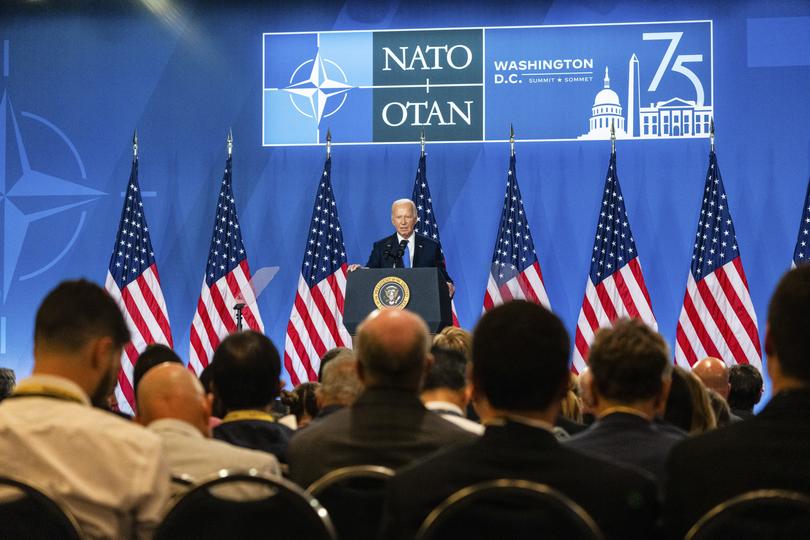
For Some, a Welcome Change
In some countries, Trump’s testosterone-fueled approach has led to a measure of hope.
In the Middle East, the United States has largely been seen as ineffective — unable to force a cease-fire in a war that threatens to engulf the region. Some hope Trump, considered strongly pro-Israel yet eager to forge deals, might find a new way forward.
The far right in Israel was fist-pumping a Trump victory, figuring he could be persuaded to side with Prime Minister Benjamin Netanyahu in any attempt to end the wars in the Gaza Strip and against Iran’s proxies in the region. When Trump’s win looked inevitable, Itamar Ben-Gvir, the ultranationalist minister of national security in Israel, posted a festive “Yesssss” on social media.
Palestinians condemned U.S. support for the wars, expressing a mix of fear and dreams for what comes next. Hamas, in a statement, said, “Palestinians look forward to an immediate cessation of the aggression against our people.”
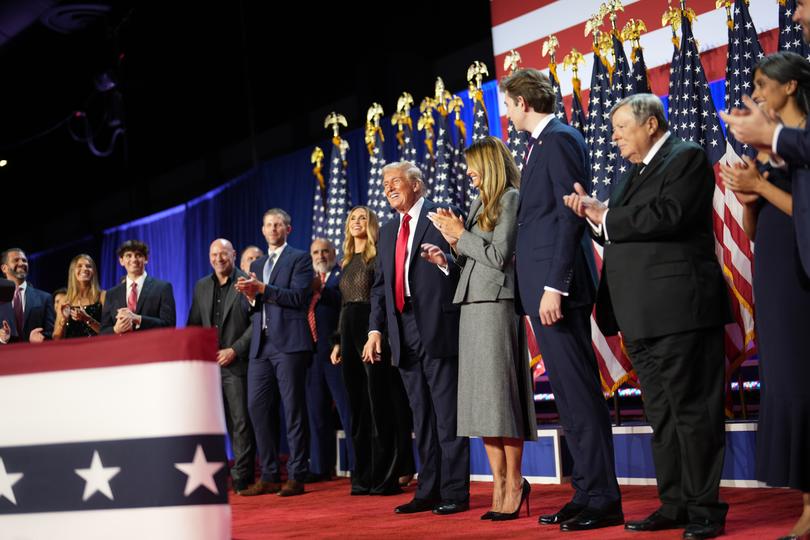
In Lebanon and some other Arab states, a second Trump term seemed to be cautiously welcomed.
“He’s crazy, but at least he’s strong,” said Anthony Samrani, the editor-in-chief of the Lebanese daily L’Orient-Le Jour, summing up what he called the prevailing mindset toward Trump in the Middle East.
Among the most enthusiastic about Trump’s win was Prime Minister Viktor Orban of Hungary, who has suppressed dissent to create an ethnocentric, illiberal democracy in his country. He congratulated Trump on Wednesday for “his enormous win” that he called “a much-needed victory for the world!”
Impact on Immigration
The widest-ranging and perhaps most immediate impact of Trump’s victory on the world may involve immigration.
He has promised that among his first acts in office would be mass deportations of millions of immigrants in the United States illegally. Critics worry that within weeks, that could mean daily planeloads of returnees to not just Mexico, but also India, El Salvador and the Philippines.
In Cox’s Bazar, a border strip of Bangladesh with camps for more than 1 million Rohingya Muslims who fled their native Myanmar, refugees worried what Trump’s antipathy toward immigration would bring.
Yusuf Abdulrahman, 26, a Rohingya refugee, said Trump’s nativist sentiment reminded him of Myanmar’s military rulers.
“Trump likes to get popularity by turning people against each other,” he said. “He says, ‘you people, those people,’ and that creates hate.”
This article originally appeared in The New York Times.
© 2024 The New York Times Company
Originally published on The New York Times
